Bernese Mountain Dogs in The Snow
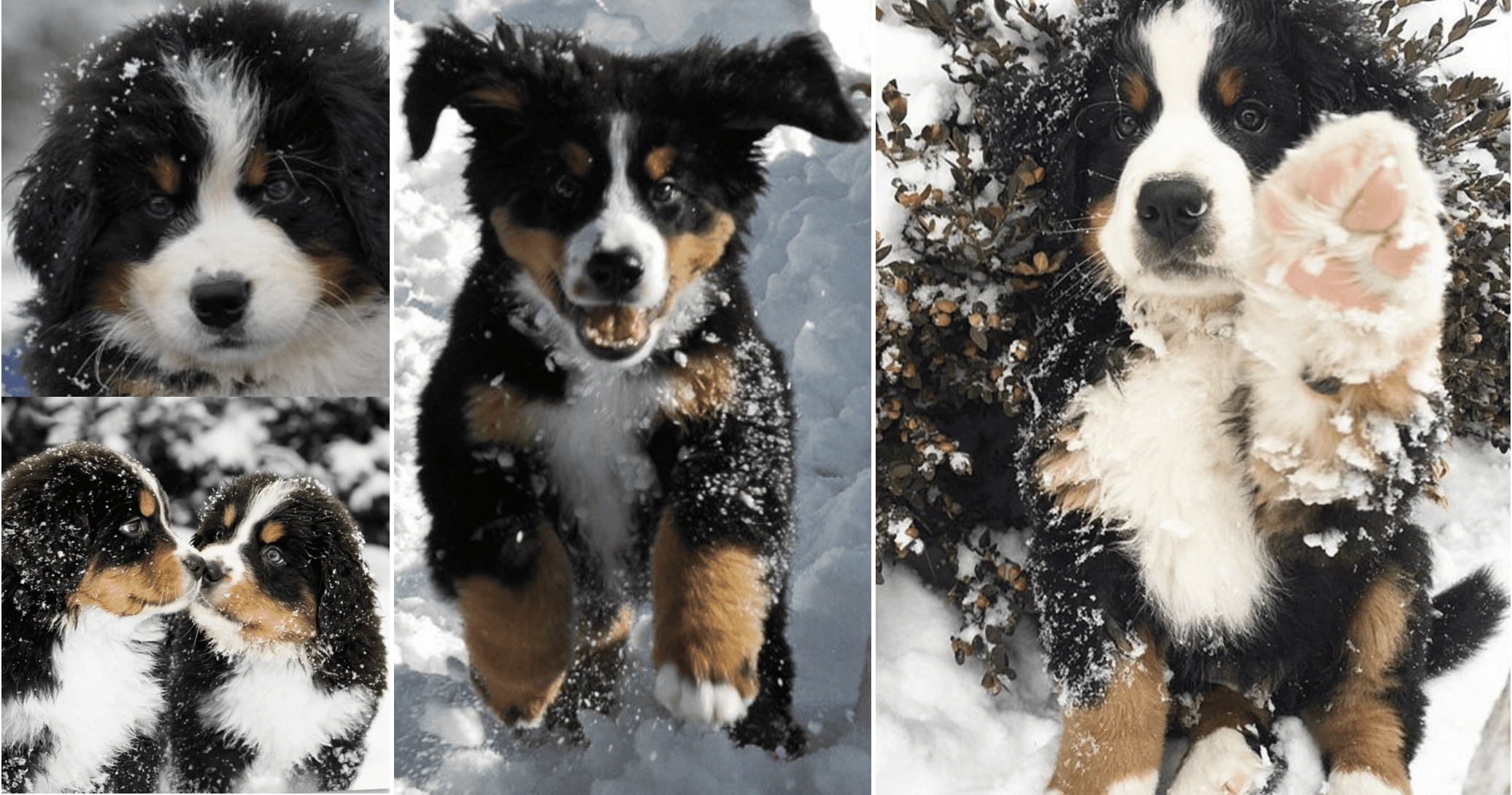
Bernese Mountain Dogs in The Snow – How cold is too cold for your Bernese Mountain Dogs to be left outside?
Dogs are individual and all of them aren’t created equal. Their ability to tolerate really cold weather depends on many factors such as age, nutritional status, health and coat type.
All other things being equal, smaller dogs are likely to get colder than huge ones. And because body fat is a good insulator, thinner puppies cannot tolerate cold weather as well as their heftier counterparts. But do not take it wrong by fattening up your Bernese Mountain dog during the winter months in order to protect them from the cold as it’s a misguided attempt and the heath risks of being overweight by far outweigh any benefits.
Speaking of Bernese Mountain coat density, here some useful information to consider:
The Bernese Mountain Dog is a Giant Fluffy Beast. The Berner is a northern breed with thick, double-layered, the Bernese Mountain Dogs were born and raised outside so they tend to be the most cold-tolerant. Compared to other breeds, Berners have anatomical, physiological and behavioral attributes that allow them to thrive in severely cold weather.
Though, there is one fact that far more dogs die in weather that is too hot than too cold. That is to say, those with the thick undercoat do the best when it is frigid but may suffer in boiling hot weather. So regular grooming a Bernese Mountain dog is really important for your giant furry dog in summer to keep him healthy. Home grooming a Berner can take a lot of time but it will be fun. To make the grooming process as smooth as possible, you should pick a good dog grooming clipper.
Cold Weather Guidelines for Your Bernese Mountain Dog
Regardless of your dog breed, once temperatures fall below 20F, you should be aware that your Berners could potentially suffer from cold-associated health problems like hypothermia and frostbite. That’s when the body is no longer able to sustain normal temperature after prolonged exposure to dangerously cold temperatures.
Despite a Bernese Mountain Dog’s ability to thrive in cold weather, do note the American Veterinary Medical Foundation does not recommend keeping pets outside in below-freezing weather for prolonged periods of time. Just as humans, they can succumb to frostbite and hypothermia, so you must keep a close watch on your furry friend.
Today, this versatile breed participates in conformation, obedience, carting, agility, tracking, herding and therapy work.
A fun game to play with the Bernese Mountain Dogs in the snow is a version of hide and seek. After shoveling in a linear maze-like pattern, place his favorite treats at different points and let him track and retrieve his reward.
If you like freezing temperatures and wet snow, your dog should too. In general, a dog that thrives in a snowy climate has a dense coat that insulates them from the elements. Often, northern dog breeds will have a good foundation – stout furry paws that allow them to traverse icy terrain.
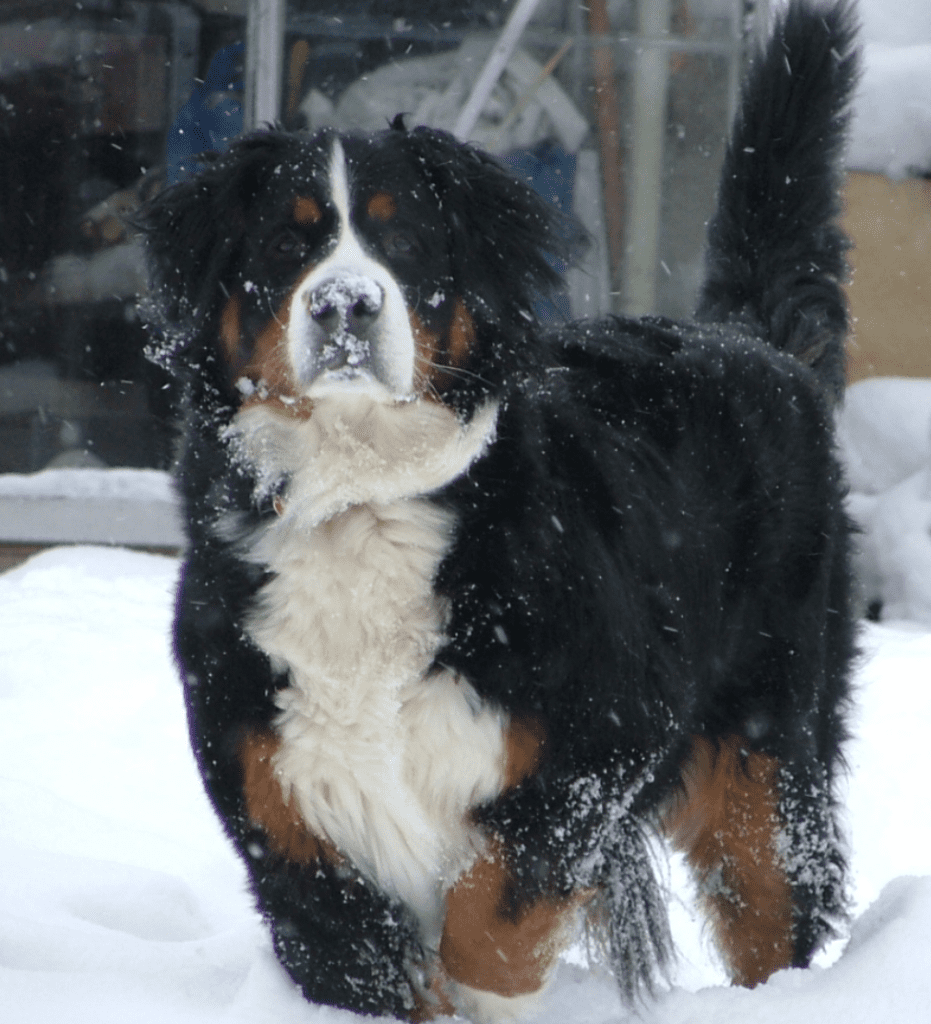
Bernese Mountain Dogs in The Snow – The Gold Standard
If you live in an area where there’s cold weather, then you know that certain breeds of dogs do better than others in the ice and snow.
Dogs that do well in cold weather all have several features in common. Often, these dogs will have stout, furry paws that allow them to traverse icy terrain. These dogs often also possess dense fur that help insulate and protect them from the harsher elements.
As their name suggests, the Bernese Mountain Dog was bred for life in the mountains where they have been used for a long time as drafting and driving dogs in Switzerland.
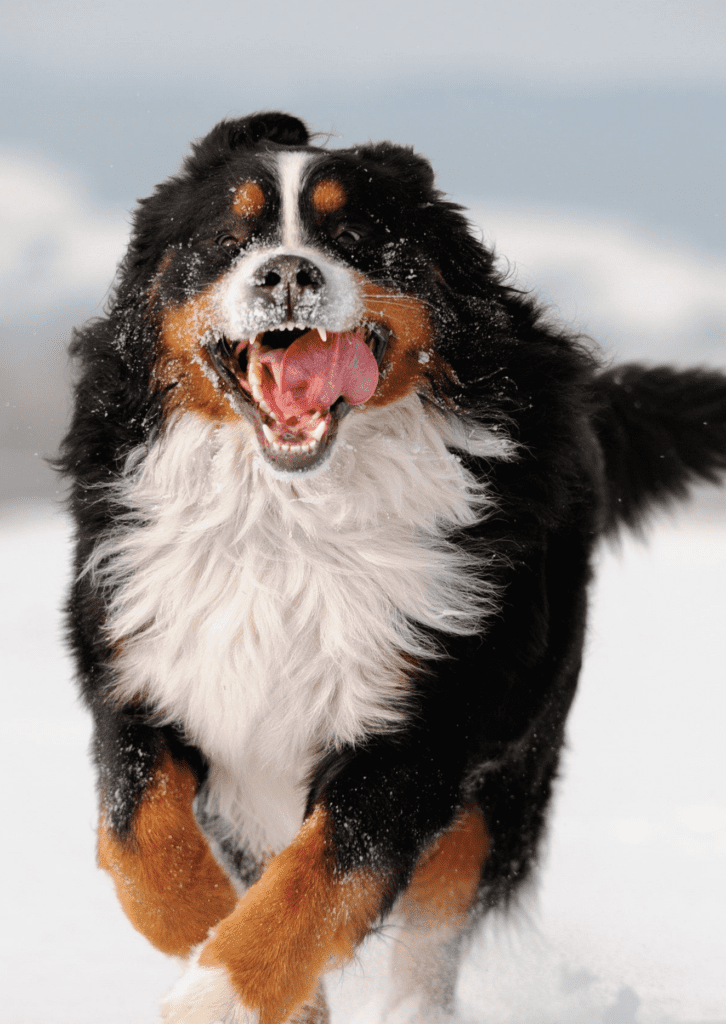
Bernese Mountain Dogs in The Snow – Agility, Speed
One of the most popular herding dogs, the Bernese mountain dog has a wonderful coat with unique markings that add to its popularity. It has strength, agility and speed to get it through the day and tough out those low temperatures. If you’re looking for a dog breed who would be suitable for hiking, then the Bernese mountain dog is certainly the breed for you. They’re capable of carrying their own gear and some of your own, if you’ll feeling a little weary during your hike.
This long-haired dog sports a striking pattern of colors, and was first bred as a drafting and driving dog in Switzerland. Both sturdy and large, this dog has a gentle temperament and low exercise needs. It’s also a perfect dog for a colder climate, since Bernese Mountain Dogs adapt to winter weather well.
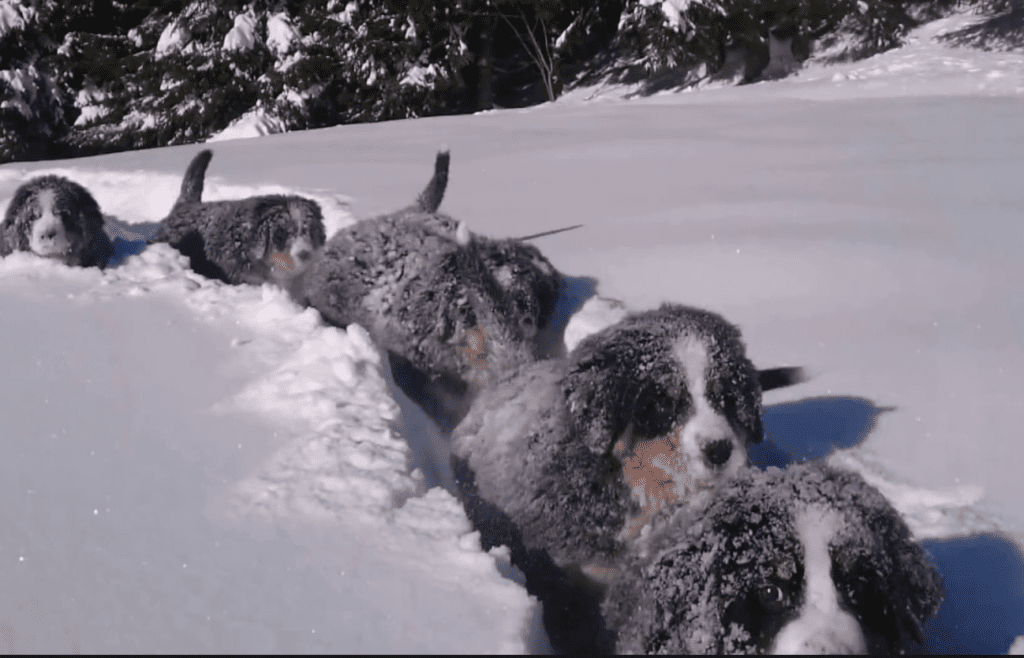
Bernese Mountain Dogs in The Snow – Endurance
They are a large dog breed who is strong and sturdy enough to carry their own gear and perhaps even some of yours. They’re also remarkably resilient, making them excellent hiking companions even in harsh, cold conditions.
The Bernese mountain dog is a large breed that’s sturdy on their paws and is known to be able to carry heavy loads. While they don’t have a high need for exercise, they do have endurance — so they can keep you company on long, cold walks.
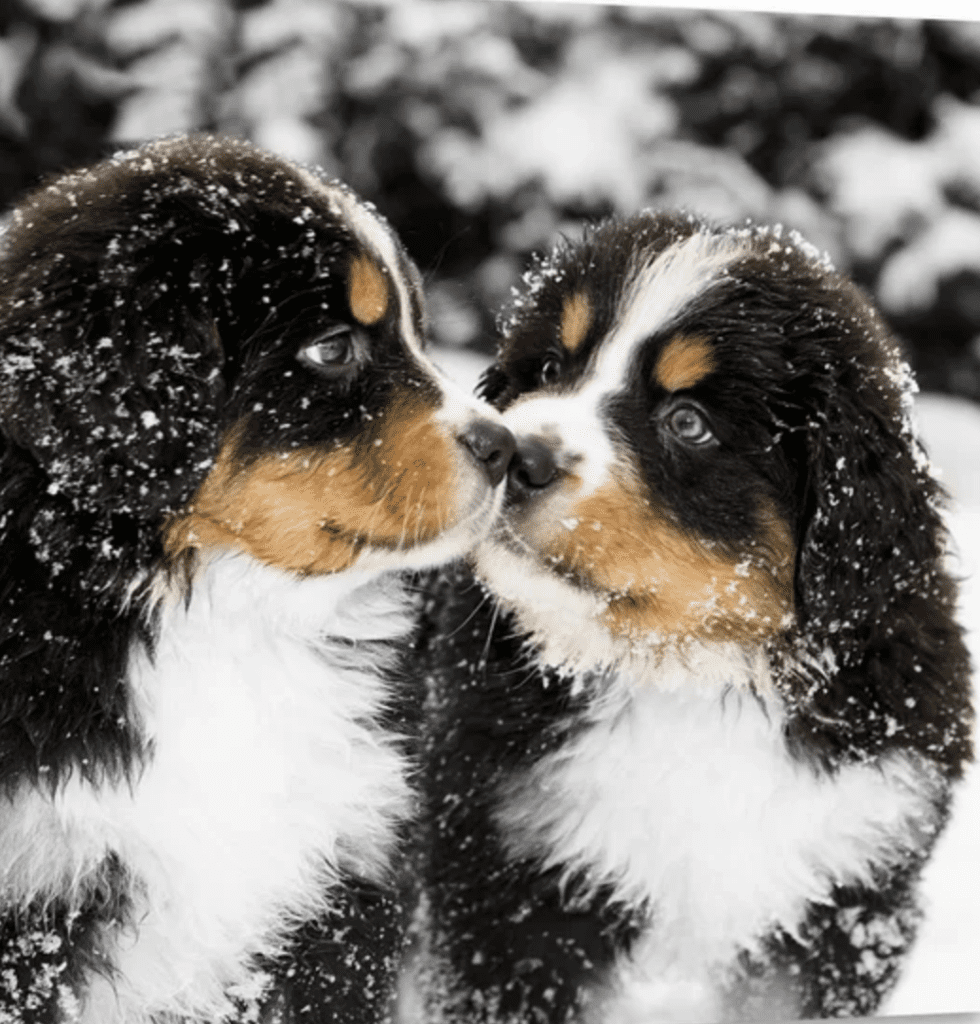
Bernese Mountain Dogs in The Snow – Affectionate, Gentle
Despite their size and strength, they’re also known for being very affectionate, gentle and totally devoted to their owner. They’re one of the most beautiful cold weather breeds and their kind disposition makes them the perfect addition to any family, especially one who likes to give their dog lots of petting.
Bernese mountain dogs are known for their gentle, docile personalities. They’re super sweet and great around families with children of all ages. These dogs happen to love outdoor activities, which makes sense when you look at them: They have long, thick fur that is perfect for being outside during cold weather. However, along with their long double-coated fur comes massive amounts of shedding, so this breed of dog would not be ideal with someone who suffers from allergies.

Bernese Mountain Dogs in The Snow – Cold Weather Pup
To qualify as a cold-weather pup, breeds had to be classified as extremely cold tolerant by Animal Planet standards. Since all breeds on the list have a high tolerance for cold, they’re ranked from least to most popular, with the top spot occupied by the trendiest type of dog.
Normally, puppies that are under 8 weeks of age cannot tolerate the deep cold at all even if they are the double-coated breeds. Like the very young, the very old and the sick are also not able to regulate their body temperatures in comparison to healthy ones in the prime of their lives and therefore they need greater care and protection from the cold.
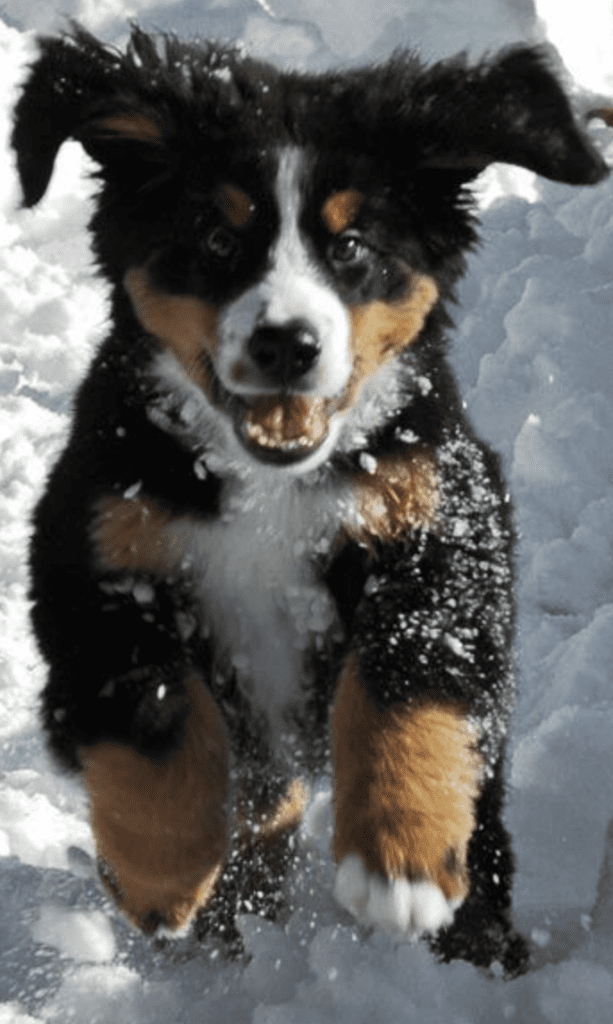
Bernese Mountain Dogs in The Snow – Fit
They do need exercise to stay mentally fit, and will prevent him from becoming obese during his down times. They’re quite a calm dog breed, and can be good natured, even with strangers.
The Bernese Mountain Dog’s coat protects from the elements by both providing warmth and keeping water out. The inner coat is a softer warm under-layer, kind of like a person wearing a nice wool sweater. The outer coat is usually rougher and is often water-resistant. Think of wearing a parka over your soft wool sweater. This is the kind of coat that Bernese Mountain Dogs have. They have a soft undercoat followed by a water-resistant outer coat. This helps them a lot in snowy environments as it helps keep them from getting cold and wet.
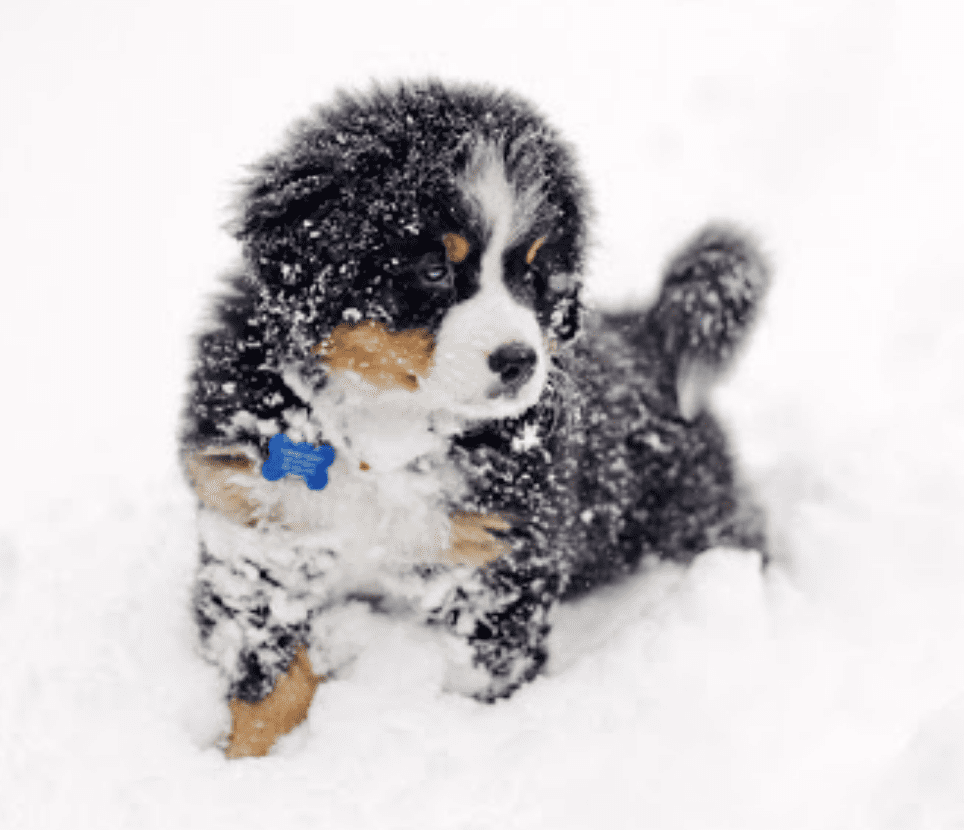
Bernese Mountain Dogs in The Snow – Cutest Puppies Ever
If you live in the mountains or are looking for a furry friend to keep you warm on those single-digit winter camping trips, these are the best dog breeds for cold-weather climates.
More on Bernese Mountain Dogs >>
Bernese Mountain Dog Videos >>


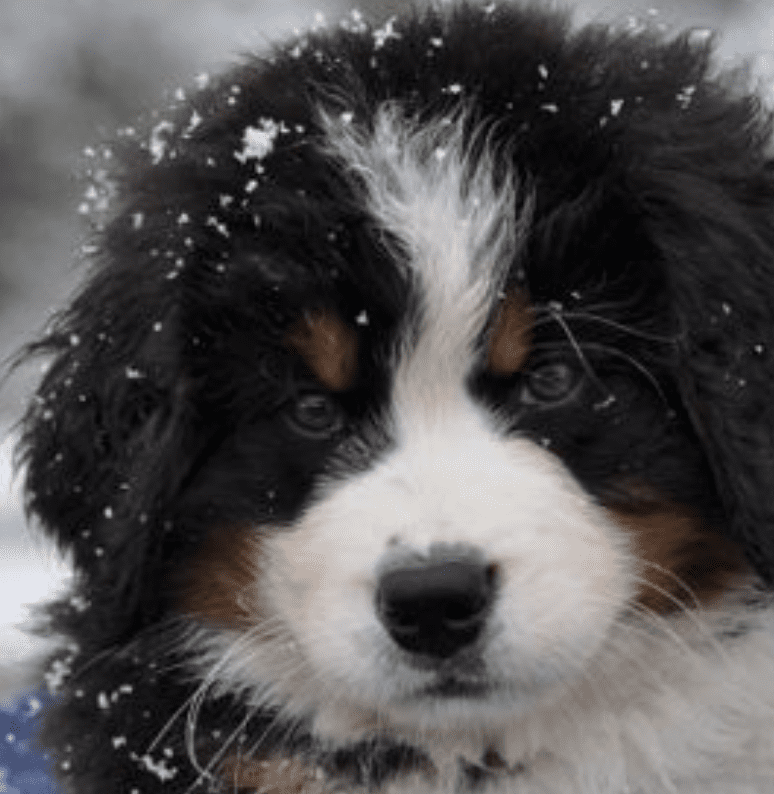
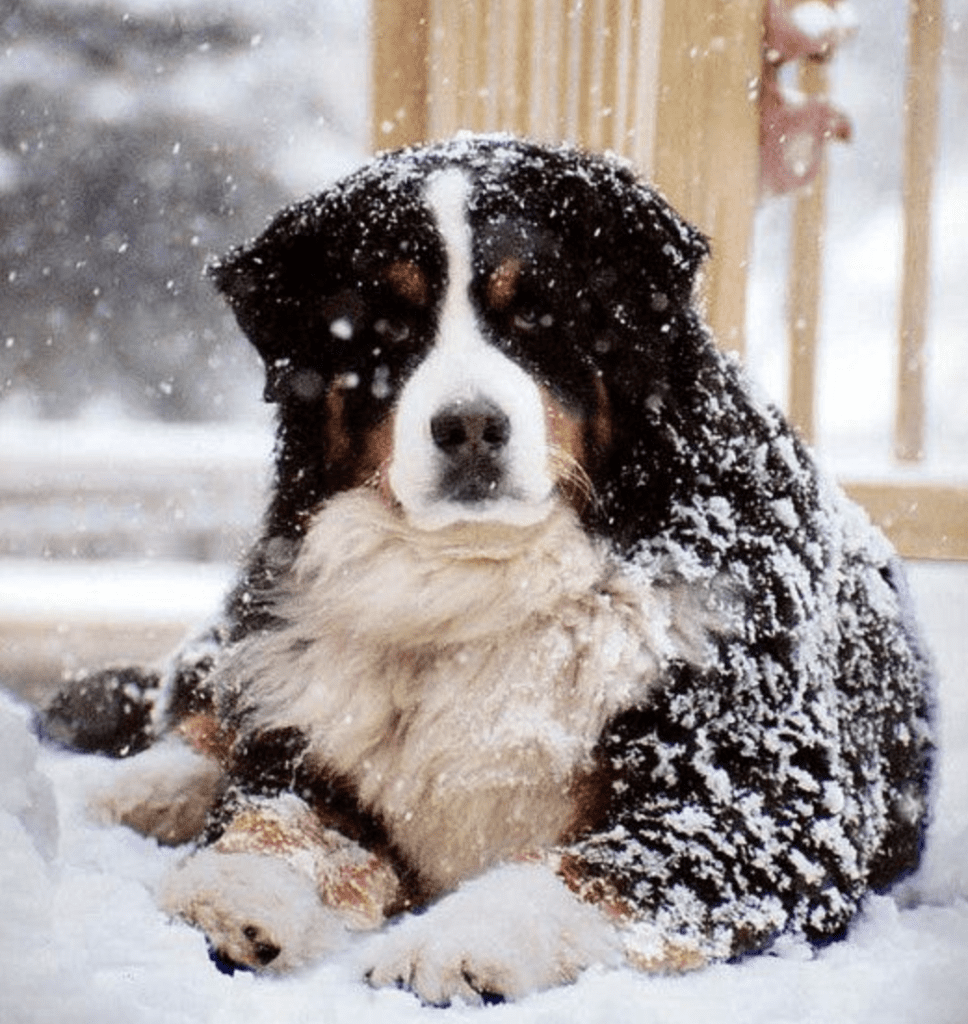
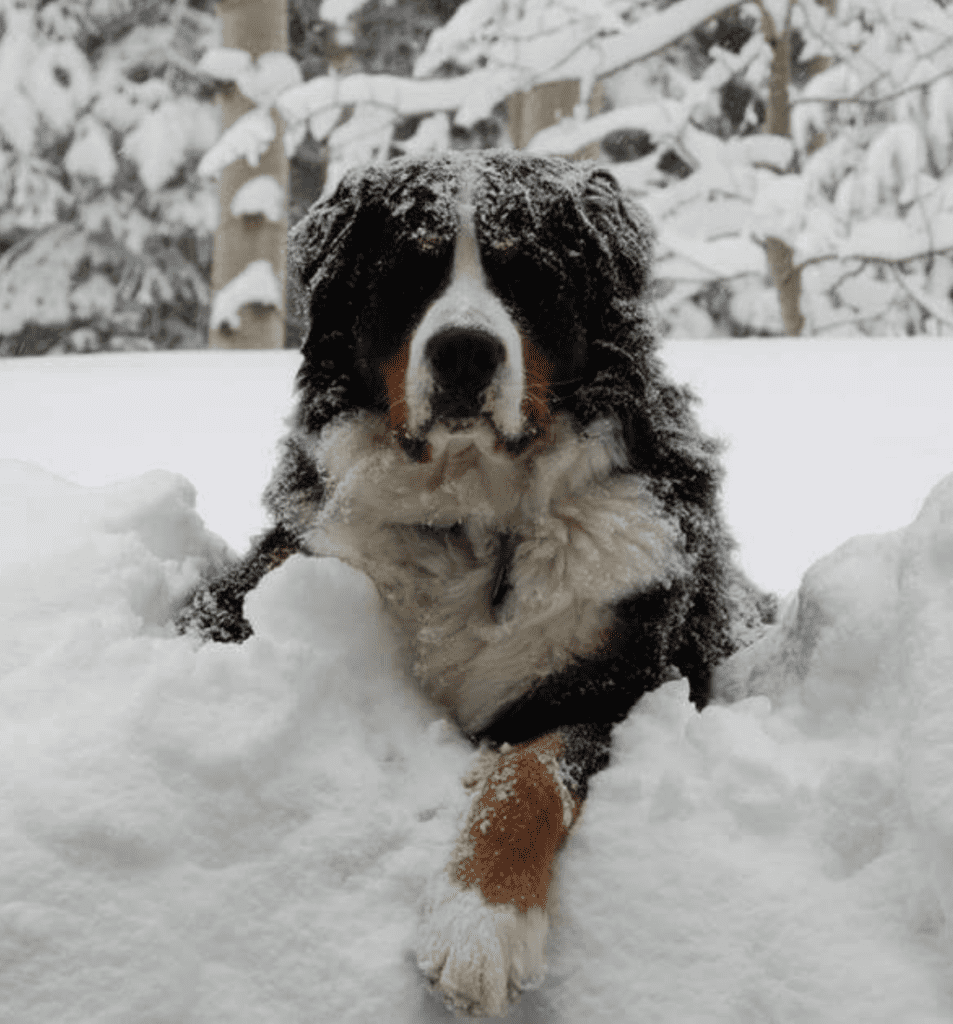

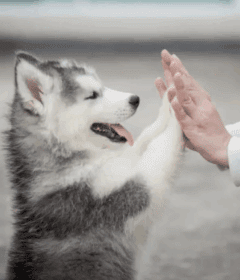
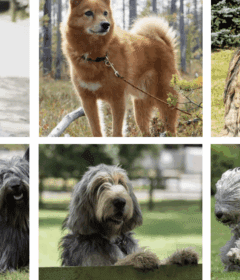

I love the breed. I have one one, Jeremiah quite the lover of snow and exceptionally smart. I will get another one day.